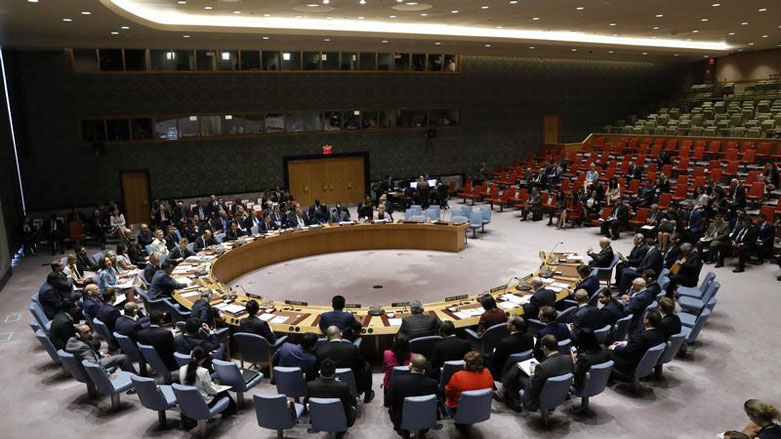UN investigator into IS crimes arrives in Iraq

ERBIL (Kurdistan 24) – The United Nations (UN) announced on Tuesday that an official appointed to investigate war crimes committed by the Islamic State (IS) had begun an eight-day visit to Iraq to gather information.
According to a statement sent to Kurdistan 24 by the United Nations Assistance Mission for Iraq (UNAMI), Special Adviser & Head of the Investigative Team for Accountability of Dae’sh/ISIL Karim Khan and his team are "tasked with collecting and preserving evidence of serious crimes committed" by the jihadist group after its 2014 takeover of large amounts of territory in Iraq.
"During his visit, Mr. Khan will avail himself of the opportunity to meet with the Office of the Prime Minister of Iraq and other senior State officials to commence the dialogue and cooperation that will be necessary to discharge the mandate of the Investigative Team," read the statement.
The UN secretary-general appointed Khan to head the team in late May, two days after the UN Security Council held a special session on Iraq.
Shortly after, Human Rights Watch (HRW) charged that the investigation was too narrow in scope, and would add to the impunity of other groups accused of atrocities in recent years. During the war with IS in Iraq, human rights organizations have made charges of ethnic cleansing, mass disappearances, and extrajudicial killings against multiple Iran-backed Hashd al-Shaabi militias, Iraqi police, Iraqi military forces, elite Iraqi counter-terrorism units, and Peshmerga forces.
“Though this new investigation could help further expose violations by ISIS and identify those responsible, it should not serve as an excuse to delay inquiries into crimes by all sides,” said HRW.
Tuesday's UNAMI statement added that Khan and his team "will also engage with other relevant interlocuters to seek a detailed understanding of the context in which the Investigative Team will operate, and this will include meeting with victims’ groups and survivors from various communities."
